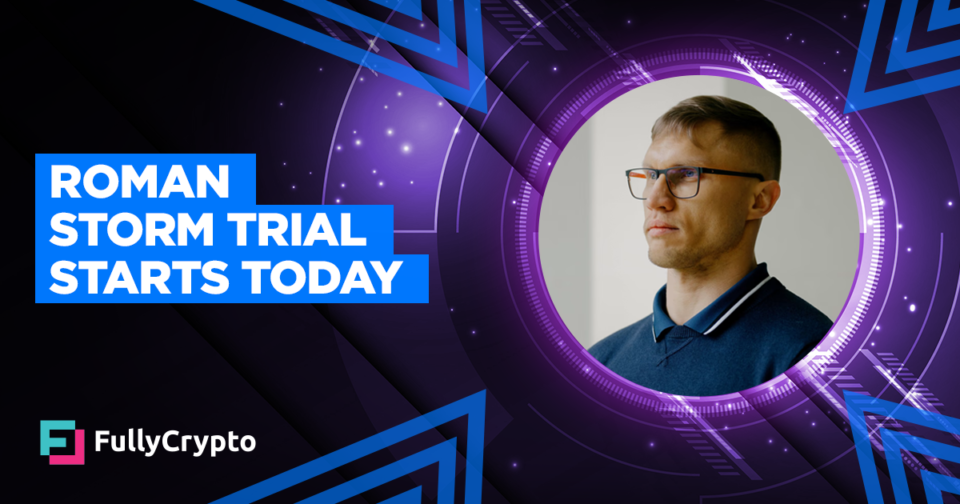
Reading Time: 3 minutes
- Roman Storm goes on trial this day in Original York over his feature in organising the Tornado Cash mixing carrier
- Prosecutors bear accused Storm of enabling over $1 billion in illicit crypto transactions, including funds allegedly tied to North Korean hackers
- The case has drawn attention as a necessary test of whether birth-offer map developers will likely be held criminally accountable for the means their code is prone
The trial of Roman Storm, co-founding father of crypto privateness protocol Tornado Cash, begins this day within the Southern District of Original York, in a single of the most eagerly anticipated authorized events in crypto history. Storm faces charges of conspiracy to commit money laundering, conspiracy to feature an unlicensed money-transmitting industry, and conspiracy to violate U.S. sanctions rules, but his defenders argue that he can’t be accountable for writing code. The case is being closely watched by the crypto industry and civil liberties advocates alike, because it will additionally resolve whether publishing decentralized, immutable code will likely be prosecuted as a prison act when rotten actors later exhaust that code.
Defining Modify in a Decentralized World
At the coronary heart of the case is a indispensable quiz: does publishing birth-offer code for a decentralized system secure you accountable for what others originate with it? The protection argues that Tornado Cash became an self reliant neat contract spot loose on the Ethereum blockchain, one its creators could additionally no longer later alter or rob down. “Roman didn’t bustle Tornado Cash,” his lawyers bear acknowledged. “He helped produce it, but like someone who publishes code, as soon because it became deployed, it became out of his arms.”
The prosecution contends otherwise, citing financial incentives and persisted model efforts as evidence that Storm remained involved smartly past the starting up date. They argue that Tornado Cash became no longer appropriate code, but a industry, and that Storm’s earnings from the TORN token and bear in its DAO governance structure amount to operational regulate.
Stakes Couldn’t be Increased
Storm’s case has garnered headlines in both crypto and mainstream media retailers attributable to its dialogue of free speech versus prison intent. If Storm is convicted, it will additionally spot a precedent that chills innovation within the starting up-offer and DeFi dwelling, as developers could additionally just inconvenience authorized consequences for the means their code is within the damage prone.
The Division of Justice has framed the case narrowly, specializing in allegations that Storm and his collaborators persisted to profit from Tornado Cash and did not rob necessary steps to end its exhaust by prison groups. A responsible verdict could additionally save a shift in how courts clarify “regulate” in decentralized methods, potentially opening the door to future prosecutions of developers working on blockchain infrastructure.
Alternatively, if Storm is acquitted, it will additionally reaffirm prolonged-standing authorized protections for publishing code and design a agency line between developers and the customers of their map. Correct scholars bear pointed to parallels with earlier battles over encryption and recordsdata superhighway privateness tools, warning that prosecuting developers for third-party misuse could additionally undermine the foundations of the starting up recordsdata superhighway.
Storm Has Already Enjoyed Smaller Victories
Storm has loved vital victories within the pre-trial phases, most tremendously earlier this month when U.S. District Want Katherine Polk Failla granted a movement from Storm’s protection team to exclude any mention of Tornado Cash’s 2022 designation on the U.S. Treasury’s sanctions checklist. That designation, issued by the Intention of job of International Sources Modify (OFAC), became later rescinded in March 2025 after a wave of court cases and political strain. Want Failla dominated that the sanctions list and its removal could additionally confuse the jury and unfairly bias them against Storm, especially given this nullification.
Want Failla additionally sided with the protection in limiting the authorities’s ability to introduce obvious “hacker” testimony or references to excessive-profile attacks like the Lazarus Crew thefts. Whereas the prosecution can smooth recent financial tracking recordsdata and interior messages to argue Storm became responsive to illicit exercise, the judge has been distinct that guilt by association on my own could no longer be ample to convict.
As complaints secure underway, the trial is shaping up to be a landmark moment within the authorized therapy of crypto privateness tools, and extra broadly, within the rights of developers to put in writing and fragment code.


